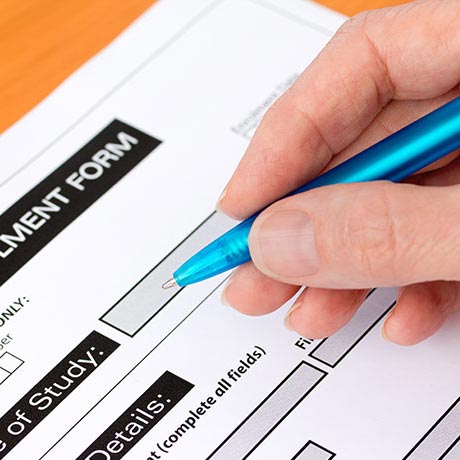Payment service providers and payment systems are both regulated under the Payment Services Act 2019 ("PS Act"). Payment service providers are licensed to provide specified payment services under the PS Act. Payment systems facilitate the transfer of funds between or among participants and may be designated under the PS Act for closer supervision.
| Timeframe | 30 Days |
| Capital | US$ 75,000 |
| Accounting Required |  |
| Nominee Required |  |
Contact Olimpic Corp INC now for more information about the Financial Adviser's Licence in Singapore.
Get Your License NowSingapore is already one of the world’s top financial hubs, and it is constantly innovating. The Monetary Authority of Singapore (MAS), the financial and AML regulator, has created a friendly and sustainable environment for fintech companies.
The new flexible regulation for payment services providers has a favorable license regime with low fees; Singapore is eager to support the development of crypto businesses.
There are no taxes on the profits generated outside of Singapore. The income from a local activity is subject to a mere 8,5% for the first S$300,000 ($220k) and 17% for anything above.
Singapore is one of the most respectable financial centers in the world. Its reputation as a stable, technology-oriented jurisdiction makes it an attractive place for business and investment.
With Standard Payment Service Providers, license owner can do any activities in the Activities of Payment Service Providers, but below specified transaction flow or E-Money float threshold which is:
List of Activities of Payment Service Provider which is the following:
| Activity Type | Brief Description |
|---|---|
| Activity A Account issuance service |
The service of issuing a payment account or any service relating to any operation required for operating a payment account, such as an e-wallet (including certain multi-purpose stored value cards) or a non-bank issued credit card. |
| Activity B Domestic money transfer service |
Providing local funds transfer service in Singapore. This includes payment gateway services and payment kiosk services. |
| Activity C Cross-border money transfer service |
Providing inbound or outbound remittance service in Singapore. |
| Activity D Merchant acquisition service |
Providing merchant acquisition service in Singapore where the service provider processes payment transactions from the merchant and processes payment receipts on behalf of the merchant. Usually, the service includes providing a point-of-sale terminal or online payment gateway. |
| Activity E E-money issuance service |
Issuing e-money to allow the user to pay merchants or transfer to another individual. |
| Activity F Digital payment token service |
Buying or selling digital payment tokens (“DPTs”) (commonly known as cryptocurrencies), or providing a platform to allow persons to exchange DPTs. |
| Activity G Money-changing service |
Buying or selling foreign currency notes. |
The criteria are as follows:


When assessing an application, MAS takes into consideration factors such as:
For more details, read the Guidelines on Licensing for Payment Service Providers.
Note: MAS considers each application on its own merits and may take into account other factors on a case-by-case basis.
Licensees are required to comply, on an ongoing basis, with all applicable requirements set out under the PS Act, as well as other relevant legislation. Licensees are expected to put in place systems, policies, and procedures to ensure that they fulfill all ongoing obligations, including the key areas below:
Licensees should also understand and apply the relevant MAS Guidelines and keep abreast of regulatory changes.

Licensed financial advisers are required to prepare and lodge with MAS a true and fair profit and loss account and a balance sheet made up to the last day of its financial year in accordance with the provisions of the Companies Act (Cap. 50), where applicable. The above documents are to be lodged together with an auditor‘s report in Form 17. In addition, they are required to submit Forms 14, 15, and 16, where applicable. These documents are to be lodged within 5 months, or within such extension of time as may be permitted by MAS, after the end of the financial adviser‘s financial year
The types of services provided by financial planners vary widely. Some planners assess every aspect of their clients' financial profile, including savings, investments, insurance, tax, retirement, and estate planning, and help them develop detailed strategies to meet their financial objectives. Others may call themselves financial planners, but only provide advice on a limited range of products and services.
MAS regulates all financial planning activities related to securities, futures, and insurance. Tax and estate planning activities do not come under our regulatory ambit. Hence, only financial planners who conduct activities regulated under the FAA are required to be licensed as a financial adviser. A financial planner may conduct other activities such as tax planning, but these are not subject to supervision by MAS.
Banks, merchant banks, finance companies, insurance companies, insurance brokers registered under the Insurance Act, holders of a capital markets services license under the Securities and Futures Act (Cap 289). are exempt from holding a financial adviser's license to act as a financial adviser in Singapore in respect of any financial advisory services. Nonetheless, exempt financial advisers and their appointed and provisional representatives are required to comply with the business conduct requirements stipulated in the FAA.
There is no need for a licensed financial adviser to renew its license. The license is valid until